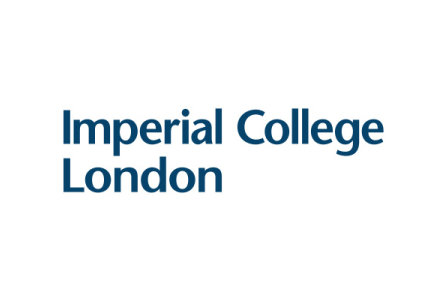Imperial College London conducts Festival of Learning and Teaching
Imperial has hosted its second collaborative and celebratory festival dedicated to education innovation and achievement.
The three-day event at the South Kensington Campus brought together keynote speakers and panellists from Imperial, as well as external speakers from King’s College London, the University of Huddersfield, and the University of Plymouth.
There were three themes over the three days: discovery-based learning, assessment and feedback, student and staff wellbeing. The festival also included a poster exhibition showcasing recent education innovations.
Professor Peter Haynes
Professor Peter Haynes, Vice-Provost (Education and Student Experience), started proceedings, saying:
“This festival is a chance for us to celebrate recent achievements and innovations, as well as to look forward to the challenges and opportunities that lie ahead of us. What is particularly special about this forum is that it spans the whole College, giving us a rare chance to spread great ideas and to identify new opportunities for collaboration.
“It certainly feels like higher education is at a significant point. We have recognised the importance of the wider student experience alongside the delivery of our educational programmes, with the mental health and wellbeing of students and staff now at the forefront of our minds. We have come through the pandemic with new insights into the power of digitally-enhanced learning as well as the benefits of more traditional methods of delivery.
“And we are on the brink of significant new developments arising from artificial intelligence – tools with the potential to transform how many jobs are done, and therefore requiring us to rethink the skills we need to provide our graduates to enable them to succeed in their careers.”
Immersive and interactive learning media
A key feature of the first day was workshops from the Digital Media Lab, showcasing new capabilities in immersive and interactive learning media. The convergence of novel gaming and entertainment industry production techniques in the sphere of education is making the integration of Extended Reality (XR) into learning experiences more relevant than ever. The workshops gave participants the opportunity to have a first look at the Extended Reality (XR) Toolbox project, which comprises new, additional building blocks for XR workflows that can be accessed by the College’s community. Discussions took place about how the workflows could be applied in different types of learning experiences, across multiple academic disciplines.
Daniel Mitelpunkt, Head of the Digital Media Lab, said: “Novel, scalable workflows in interactive and immersive learning media are paving the way to transformative new learning experiences. We are excited that these newly acquired capabilities in creating realistic digital labs, motion capture-based interactions, and game engine driven data visualisations are already being leveraged by our education community.”
Delegates gather around an immersive learning experience on a digital screen
Delegates gather around an immersive learning experience on a digital screen
Coping and succeeding
One of the highlights of day three was a keynote by Kate Ippolitto, Principal Teaching Fellow in Educational Development in the Centre for Higher Educational Research and Development (CHERS), who talked about how educators can influence feelings of coping and succeeding in university classrooms. Both learners and teachers regularly experience contrasting feelings of discomfort and pleasure as they learn to adapt to dynamic learning settings – and both are necessary for transformative learning processes. The capability to recognise, understand and regulate these emotional experiences is important for successful development and well-being.
Students take the lead
The second and third days saw students take the lead on panel sessions, showcasing how seriously the College takes the learning experience. The second day panel session considered the impact of digital technologies on assessment and feedback. Students across different disciplines shared insights into their experiences of assessment and feedback at university, with a particular focus on the role of digital technologies in the assessment process.
There was a lively discussion around how technology might change the way students engage with feedback and encourage self-regulated, long-term learning, and how assessment practices may be changed by artificial intelligence, such as ChatGPT.
Stephanas Lim, 3rd Year Undergraduate Chemistry student, said: “I felt very privileged to be part of the panel, which had open dialogue and insightful discussion. I learnt a lot not just from my other panellists but also from staff who addressed their concerns about AI’s application – how will it affect the way we run assessments and give feedback – and equity of usage amongst students.”

